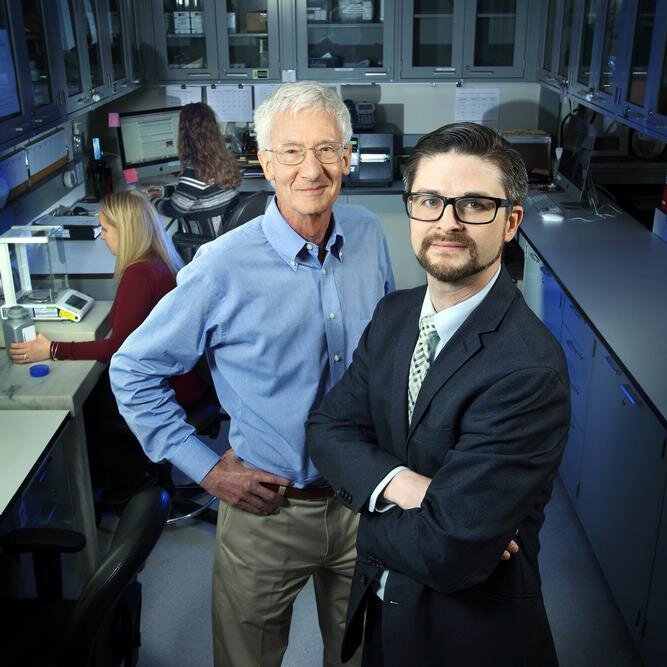#76: Matthew Johnson - The Benefits of Losing Your Mind | The Psychedelic Series (4/5)
Listen to us wherever you get your podcasts (click the links below!)
Episode Description
In this episode, we discover the story of Matthew Johnson, a professor of Psychiatry and Behavioral Sciences at John Hopkins University, and one of the first scientists to publish extensive research on the effect of psychedelic drugs on the brain. Specifically, how compounds like psilocybin can help cure mental illness.
As a disillusioned engineering major and in the middle of a midlife crisis, Matthew’s drive of helping others led him to the study of behavioral psychology. Then, as a graduate student at Hopkins, Matthew’s research took a pivotal turn towards the study of LSDs and other drugs, and to the discovery of how these chemical compounds may be the key to solving addiction and even help patients combating cancer.
Now, Matthew tells us more about his scientific journey and clues us in on how psychedelics can potentially help shape the future of mental health.
Show Notes
Childhood: Matthew talks about growing up in an integrated neighborhood, his early education, and the outset of his scientific interests.
College & Psychology: Matthew discusses his desire to help people, and his early introduction to psychology.
Midlife Crisis: Matthew faces disillusionment and decides to take a few years off school. During that hiatus and while working various jobs, he begins to feed off a newfound interest in the effect of drugs on the mind.
Psychedelics: What is the mind? What is consciousness? And how can a chemical affect a person’s everyday life?
Return to College: With a people-centered interest, Matthew goes back to college to study psychology.
Early Research: During graduate school, Matthew becomes a research assistant for a lab rat experiment and encounters some riveting findings.
Psychedelic Research: Now as a graduate student at Hopkins, Matthew becomes interested in understanding addiction and human behavior.
The Psilocybin Project: How can an ego death and a sense of unity promote a therapeutic breakthrough?
Sessions: Maintaining control when letting go – Matthew tells us more about his published psychedelic safety guidelines.
Reassuring: “Right now, you’re in a safe environment where you can judiciously choose to let go; into the unknown, into a mystery, with courage, and then come back to consensus reality.”
Treating Cancer & Addiction: Matthew’s initial desire to help leads him to embark on further research on psychedelics, and how to help people with cancer and tobacco addictions.
Positive Change: How does something with so much momentum pushing against it become the answer for a common good?
Future: A glimpse into possible breakthroughs for mental health within forthcoming years.
Links From the Episode
B.F. Skinner: https://psychology.fas.harvard.edu/people/b-f-skinner
LSD & The Beatles: https://faroutmagazine.co.uk/how-lsd-changed-the-beatles/
Psychedelics: https://adf.org.au/drug-facts/psychedelics/
Psychedelic Safety Guidelines: https://www.researchgate.net/publication/5259182_Human_Hallucinogen_Research_Guidelines_for_Safety
MDMA: https://adf.org.au/insights/mdma-ptsd/



